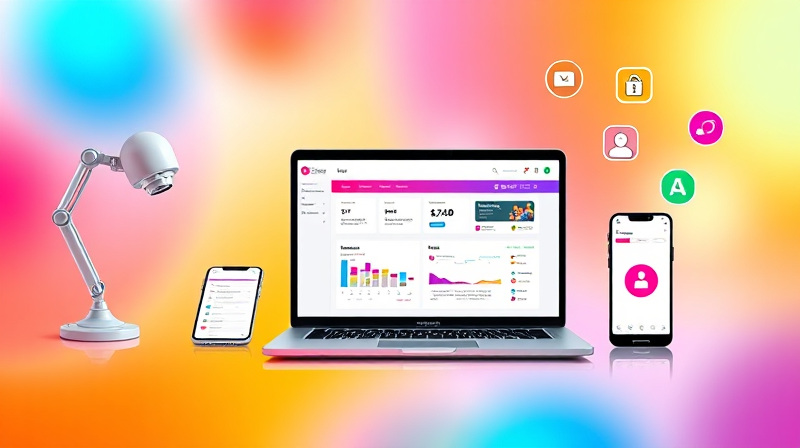Recognizing counterproductive behaviors is the first step toward unlocking your full potential. In both personal and professional realms, many individuals face challenges that hinder development. These challenges are often rooted in negative habits and thought patterns that prevent forward momentum and create a cycle of self-doubt and procrastination.
Understanding and addressing these behaviors helps build a strong foundation for progress. It involves not only recognizing what holds you back but also striving to replace them with positive, inspiring strategies. Each small step can lead to significant breakthroughs in achieving long-lasting growth and success.
Common Behaviors That Impede Progress
Several behaviors are known to significantly impact progress. It is essential to be aware of these pitfalls so that you can work diligently to overcome them.
- Lack of Self-Belief: When self-doubt overtakes your thoughts, you may begin to feel unworthy and unprepared. This limitation can cause you to miss valuable opportunities by shutting down your potential before you even begin.
- Procrastination: Delaying tasks not only builds up unnecessary stress but also stalls critical decision-making processes. This habit often originates from deep-rooted fears such as fear of failure or even fear of success.
- Living in the Past: While reflecting on past experiences can be educational, dwelling on them too much can create a stagnated mindset. This behavior can prevent you from fully embracing the present and planning for the future.
- Fear of Taking Risks: Risk aversion can lead to missed opportunities for growth. If you stay within your comfort zone indefinitely, you may never experience the transformative changes that come from stepping into the unknown.
- Lack of Self-Reflection: Without regular introspection, you might not identify behaviors and patterns that are detrimental to your progress. Self-reflection is vital for uncovering areas in need of change.
- Negative Mindset: Consistently viewing situations from a pessimistic angle can undermine your motivation and fuel further negativity, making success seem unattainable.
- Resistance to Change: An unwillingness to adapt often results in stagnation during a time when transformation is key. Embracing new ideas and methods is essential for continuing to move forward.
- Poor Communication Skills: Ineffective communication can lead to misunderstandings and missed collaborative opportunities. It can also affect how you build relationships both personally and professionally.
- Lack of Accountability: Blaming others or external circumstances might seem like an easy escape, but it hinders self-growth and prevents you from learning from mistakes.
Each of these behaviors can play a significant role in hindering both personal fulfillment and professional achievement. The key to overcoming them lies in diligent self-assessment and making a conscious effort to introduce positive changes into your life.
Effective Strategies for Eliminating Negative Behaviors
Once you have recognized which behaviors are holding you back, the next stage is to replace them with strategies that promote growth and development. Sustainable change is about building a system that cultivates a productive mindset and healthy habits.
Cultivating Self-Awareness is essential in this transformation process. Engage in reflective practices such as journaling, meditation, or even seeking guidance from those you trust. Self-awareness reveals the nuances of your behavior and provides actionable insights to improve your path forward.
Setting clear and specific goals helps provide direction and structure. When your goals are defined with clarity, it becomes easier to track progress and celebrate milestones, no matter how small.
Developing a growth mindset is another cornerstone for success. Challenging your fixed beliefs about your abilities and embracing the idea that talent and intelligence can be developed is a transformative shift. When you see setbacks as learning opportunities instead of failures, your resilience improves and your potential expands.
Moreover, a strong support system reinforces your ongoing journey. Surrounding yourself with encouraging friends, mentors, or professional coaches can help buffer against the setbacks that arise from self-doubt and isolation. A reliably positive network can remind you of your worth and spur you to try new avenues.
Effective time management is also key in overcoming behaviors such as procrastination. Techniques like the Pomodoro Technique or setting time-blocks for specific tasks can dramatically improve focus and productivity. These methods keep you concentrating on your work without getting overwhelmed by the volume of tasks.
Continual learning plays an equally important role. Embracing every opportunity to learn new skills and broaden your knowledge can make you far more adaptable. This sense of continual improvement allows you to approach challenges with a fresh perspective and new strategies.
Improving your communication skills ensures that you can foster deeper connections and express your vision clearly. Both verbal and non-verbal methods of communication require regular practice to fine-tune and become more effective.
Lastly, never underestimate the power of self-compassion. Caring for yourself during setbacks provides the necessary emotional balance to continue the journey without discouragement. Embracing failure as part of the broader learning process can dramatically shift your perspective towards more positive outcomes.
By integrating these strategies into your daily routine, you can replace habits that impede progress with those that enable consistent personal and professional growth. The journey of transformation often requires time and persistent effort; however, every small change you implement brings you closer to a more fulfilled and successful version of yourself.
Ultimately, ongoing self-improvement is a continuous process, and the key is to remain patient and persistent throughout. With every constructive change, you are better equipped to meet challenges, seize growth opportunities, and create a life rich in achievement and satisfaction. Remember, the journey toward progress starts with the decision to change and the courage to implement that change daily.








